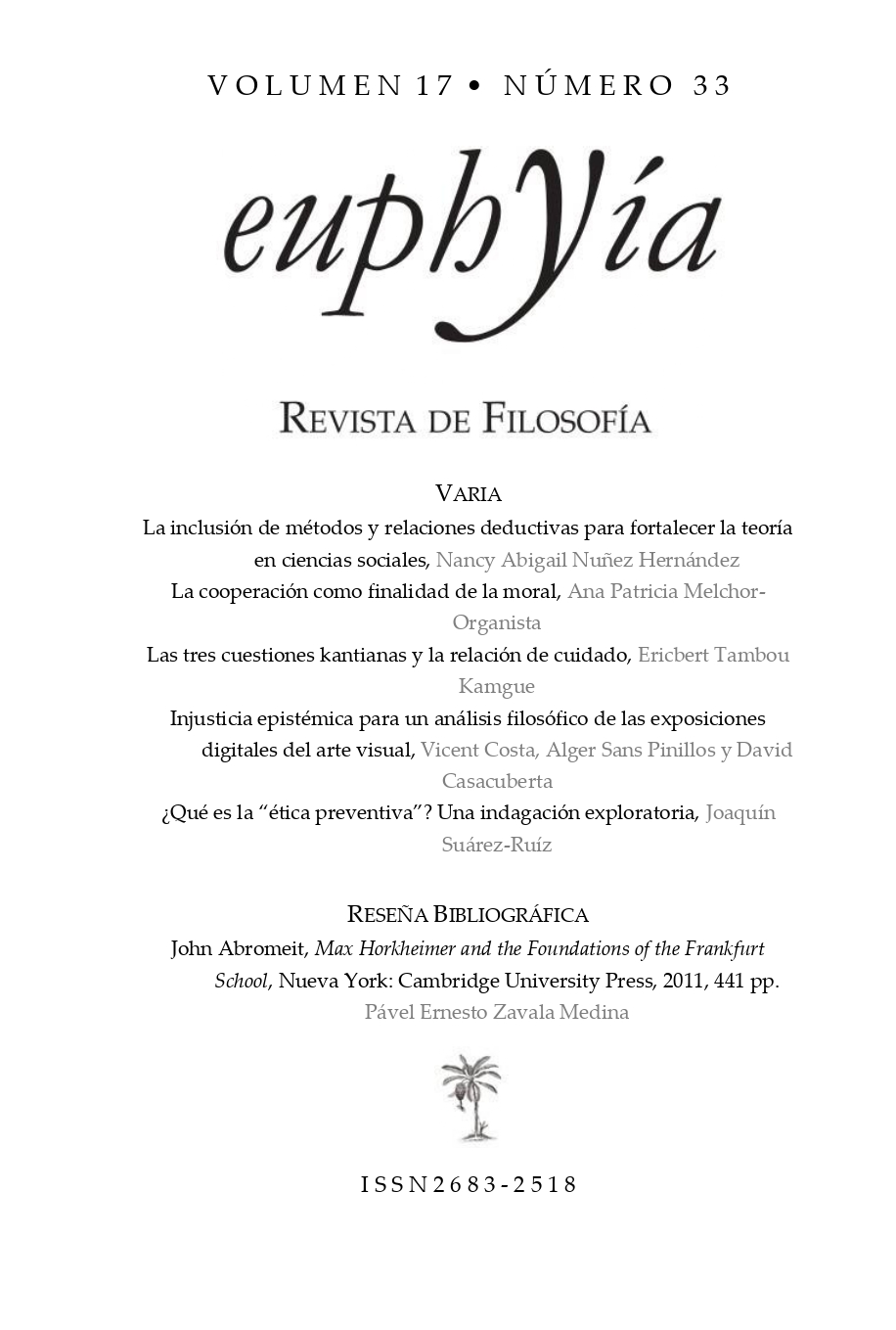Cooperation as the goal of morality
DOI:
https://doi.org/10.33064/33euph6518Abstract
In this paper, we analyse the hypothesis shared by many authors of the Empirically Informed Theory of Morality, which predicates that morality played a pivotal role in our evolutionary history as human beings: ensuring social order and cooperation. This hypothesis was originally posited by Thomas Hobbes in the XVII century. Both kind of theories, the one that originated in classical philosophy and the one that comes from empirical research postulate the same goal —cooperation— but differ in the mechanisms that lead to it. We analyse if these mechanisms —rational, in the first case and emotional in the second— can be integrated, and the role they play in our moral lives. After analysing both theories, we study the specific characteristics shared by the norms we classify as moral, their relation to cooperation and the reaches and limits that would follow from assuming cooperation as the prescriptive criterion underlying our moral norms from the case of Contractevolism.
Downloads
Metrics
Downloads
Published
How to Cite
Issue
Section
License

This work is licensed under a Creative Commons Attribution-NonCommercial-NoDerivatives 4.0 International License.

Este obra está bajo una licencia de Creative Commons Reconocimiento-NoComercial-SinObraDerivada 4.0 Internacional.










